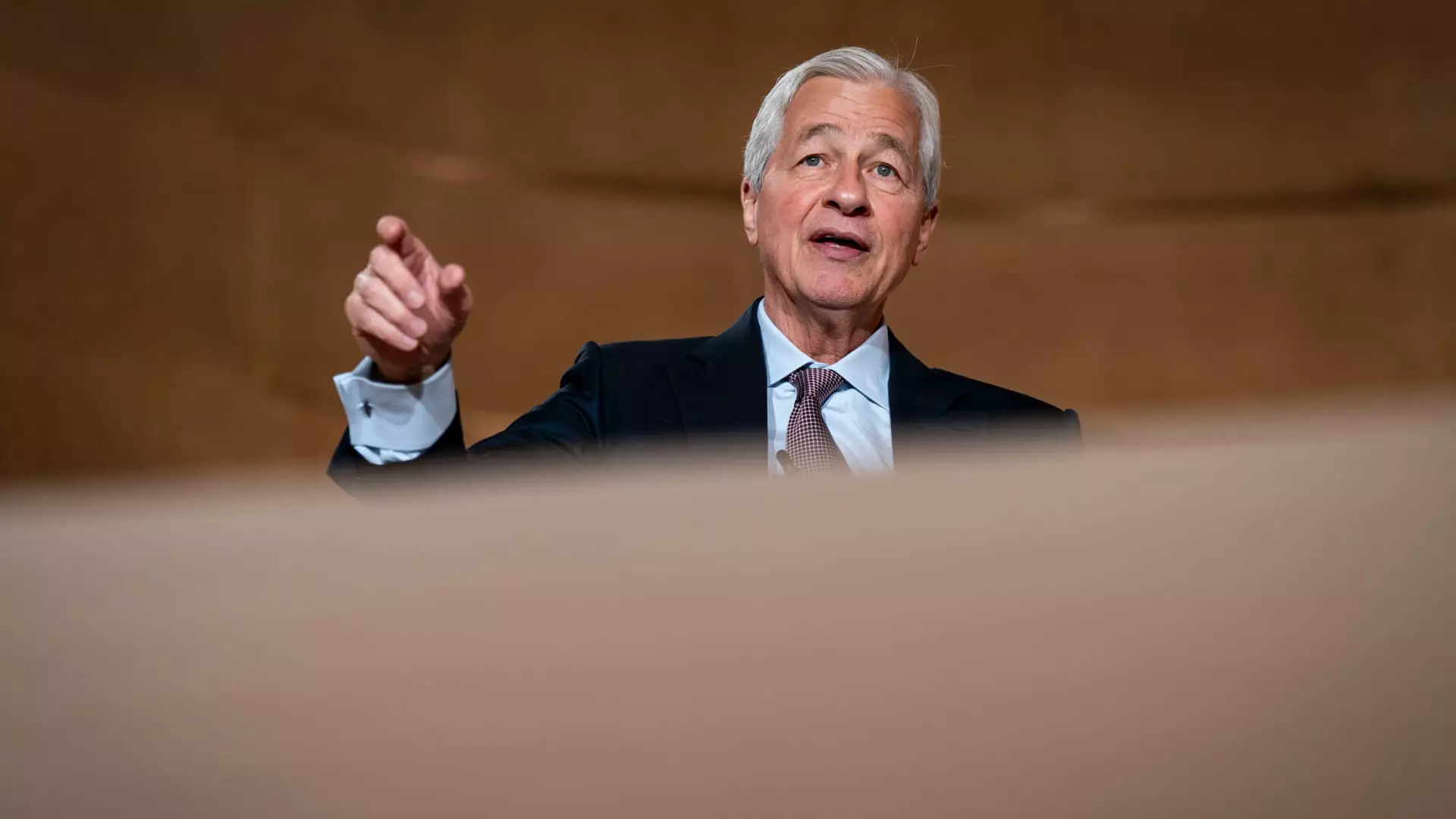In a strikingly candid speech during JPMorgan Chase’s annual investor day, CEO Jamie Dimon sent ripples through the financial world with his uncompromising views on the current economic climate. His assessment of the situation goes beyond mere numbers and traditional market analysis; it’s a forthright critique of an atmosphere he perceives as rife with complacency. While markets revel in recent recoveries, Dimon remains resolute in his belief that hidden dangers lurk beneath the surface. His warnings about record U.S. deficits, international trade tensions, and the role of central banks raise pressing questions about the stability of the economic ecosystem that businesses often take for granted.
The Mirage of Recovery
Dimon’s assertion that the markets’ optimism is nothing short of a dangerous delusion is particularly compelling. While stock prices rebound from lows, the underlying economic indicators suggest a more tumultuous reality. By drawing attention to the staggering budget deficits, Dimon argues that market participants are not fully grasping the implications of fiscal irresponsibility. Central banks, he notes, operate under an almost naïve confidence that they can manage these challenges. Such a perspective should serve as a wake-up call to investors who are otherwise lulled into a false sense of security by rising stock prices. It’s an uncomfortable yet necessary reminder that the cyclical nature of markets often masks deeper systemic issues.
The Specter of Stagflation
Beyond mere fiscal concerns, Dimon paints a harrowing picture of potential stagflation—a term that sparks fear among economists and investors alike. The concept of a recession compounded by inflation feels like a ghost looming over global markets, yet Dimon’s insistence that its probability is underestimated adds urgency to his message. As he suggests, if corporate earnings are set to stagnate, then the optimism currently surrounding stock prices may be utterly unfounded. This raises the stakes considerably; ensuring that the dialogue shifts from short-term gains to a more sustainable economic framework is vital.
Corporate Caution and the Wait-and-See Mentality
Adding another layer to this narrative is the apprehensive stance of corporate clients. As one of Dimon’s top deputies indicated, companies are currently in a “wait-and-see” mode regarding acquisitions and deals, likely reflecting the broader uncertainty that has enveloped the marketplace. This hesitance is not trivial; it signifies a cautious approach among business leaders who may be recognizing the precariousness of current economic conditions. Such a mindset is mirrored in the expectations for decreased investment banking revenue and only modest increases in trading revenue—further evidence that the winds of change may not be blowing in favor of rampant market optimism.
Leadership Transition: A Legacy in Limbo
Amidst the backdrop of these serious economic concerns, Dimon also addressed questions about his eventual departure as CEO. His stated timeline, which hints at a transition within five years, poses an additional layer of uncertainty. Dimon is a figure whose influence extends beyond JPMorgan Chase; he represents a certain era in American banking where risk and caution must be balanced delicately. As discussions surrounding his succession unfold, the direction of the bank—and by extension, broader financial markets—remains a major talking point.
A Call for Reckoning
Ultimately, Jamie Dimon’s remarks serve as a necessary confrontation with complacency that has taken hold in financial circles. His perspective, rooted firmly in practical wisdom and an eye for systemic risk, challenges the prevailing narrative of unrelenting growth and recovery. The economy is not merely a sum of its parts; it’s an intricate web of expectations, realities, and uncertainties. Dimon’s discourse demands that we reassess how we approach financial forecasts, corporate strategies, and the strategies of central banks. Rather than continuing to dance on the precipice of complacency, perhaps it’s time for investors and companies alike to look deeper and confront the economic realities that may soon demand our respect and attention.

